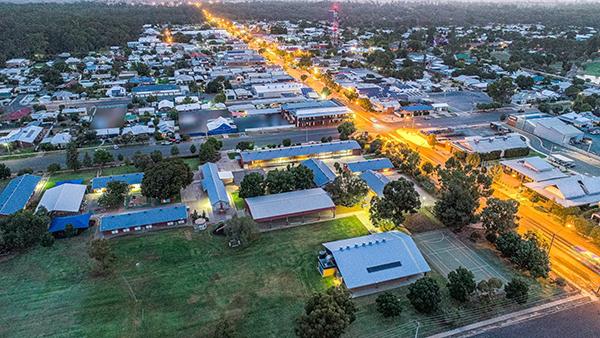The NSW Government declared the South West Renewable Energy Zone (REZ) in November 2022. Projects in the REZ include new transmission lines, solar and wind farms. Prior to the creation of the REZ, Hay Shire was an agrarian economy. The community had concerns about how renewable projects could disrupt their way of life, while recognising the opportunity to diversify the economic base for long-term resilience. Hay Shire partnered with RE-Alliance to support their engagement with the transition—putting the community first to ensure there was opportunity for discussion, not division.
RE-Alliance started with community education, setting up a 'Renewable Energy 101' workshop for Council, breaking down why the energy shift was happening, why it was happening in Hay, and what Hay could gain from these projects. Next, 12 influential community members, many sceptical of renewables, were brought into the conversation through another workshop. The goal here was less about persuading and more about having an open discussion on facts. RE-Alliance listened to the concerns of attendees and answered their questions. They also took the time to talk about life in Hay as it stood now and the challenges the community was facing in their daily lives. The workshop unearthed critical issues facing the town, including a lack of aged care services and essential medical care, and the impact of rising electricity costs on the local community. Through the workshops, the group realised the REZ could be leveraged to not only attract investment but also address critical issues—like an aged care facility, improved medical transport and affordable energy.
The Council next organised a series of public meetings. These workshops were open forums where residents could ask questions, voice concerns and get a clearer picture of how renewable energy projects might impact Hay. Council worked hard to ensure everyone understood the process ahead and that any project would ultimately require NSW Government approval. Repeating this process with the broader public ensured everyone had a chance to be heard and understand the potential project impacts and benefits. Many still had doubts about climate change, but most supported any move that would bring jobs and investment to Hay.
Hay emerged from this process with a consolidated set of principles outlining the town's expectations from any future renewable projects. The document covers everything from essential infrastructure improvements, like independent living facilities and childcare services, to long-term financial benefits for the community. The principles provided a clear, unified message to developers about what Hay expected. Developers expressed strong support for these, as they gave a clear direction on what the community wanted. The results for Hay were significant:
- Developers agreed to provide affordable electricity for the entire town, which resonated with the community's desire to feel the direct benefits of renewable energy.
- Hay secured commitments for other social investments, including for education, housing, and independent living facilities.
- Significant community benefit funds that, over the next 30 years, would fund projects and programs that deliver intergenerational benefits.
For developers, the process was also positive. Normally, renewable projects face significant opposition in rural areas, with as much as 90% of submissions typically being objected. In Hay, that ratio has flipped—a situation attributed to whole of community engagement.
Hay is one of 7 shires in the REZ, who all work closely to deliver both local and regional benefits from the energy transition. In April 2025, 4 projects were granted access to the South West REZ, of which 2 have a footprint in the Hay Shire. The work the community and Council have delivered will ensure the developments "will happen with Hay and not to it".

Image: Hay town.
Note: Case study current as at 16 October 2025.